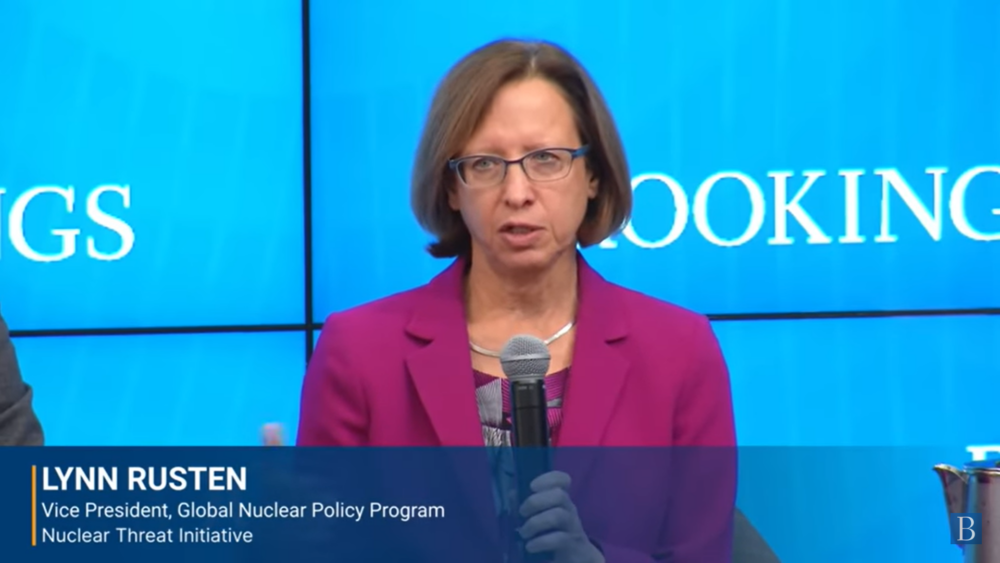
NTI’s Lynn Rusten on Defense Department’s New Strategy for Countering Weapons of Mass Destruction
The DoD’s new CWMD strategy, last updated in 2014, comes at a time when longstanding norms against nuclear use are being tested.
Nuclear Threat Initiative Releases Statement Regarding President Bush’s Budget Cuts in Nonproliferation Programs
Former Senator Sam Nunn, co-chairman and chief executive officer of the Nuclear Threat Initiative, today released the following statement regarding President Bush’s Fiscal Year 2002 Budget Plan, which proposes large funding reductions in many U.S. Department of Energy nonproliferation programs:
“I support a top-down review of all threat reduction programs to ensure efficiency, strengthening and better coordination. However, I am disappointed that the Administration has proposed reductions in many of these essential programs—apparently before that review is completed. President Bush’s support for threat reduction during the campaign indicated his willingness to make these programs a priority, but this budget proposal, unless corrected by Congress, would take a dangerous step backward.
We face a broad spectrum of threats from weapons of mass destruction— nuclear, biological and chemical. The threat from these weapons constitutes a clear and present danger to the security of the U.S. and the world. This is America’s greatest unmet security threat. I believe that once these programs are evaluated, the Bush Administration will determine that no defense-related expenditure can produce a return of higher value. Until that time, this budget proposal puts these programs in question. Such an action is counterproductive to both the timing and momentum needed.”
NTI, a nonpartisan foundation located in Washington, DC, is focused on direct action to reduce the risk of use and prevent the spread of nuclear, biological and chemical weapons. NTI is also working to build the trust, transparency and security that are preconditions to the ultimate fulfillment of the Nonproliferation Treaty’s goals and ambitions. Ted Turner launched the organization in January with a commitment of $250 million in funding over the next five years.
Sign up for our newsletter to get the latest on nuclear and biological threats.
The DoD’s new CWMD strategy, last updated in 2014, comes at a time when longstanding norms against nuclear use are being tested.
The paper highlights the need for renewed attention to the catastrophic effects of nuclear conflict as a crucial step toward reducing the risk of nuclear use.
A new report from NTI highlights the critical need for a global diplomatic approach to address growing cyber risks, including, where possible, through cooperation between the United States and Russia.

